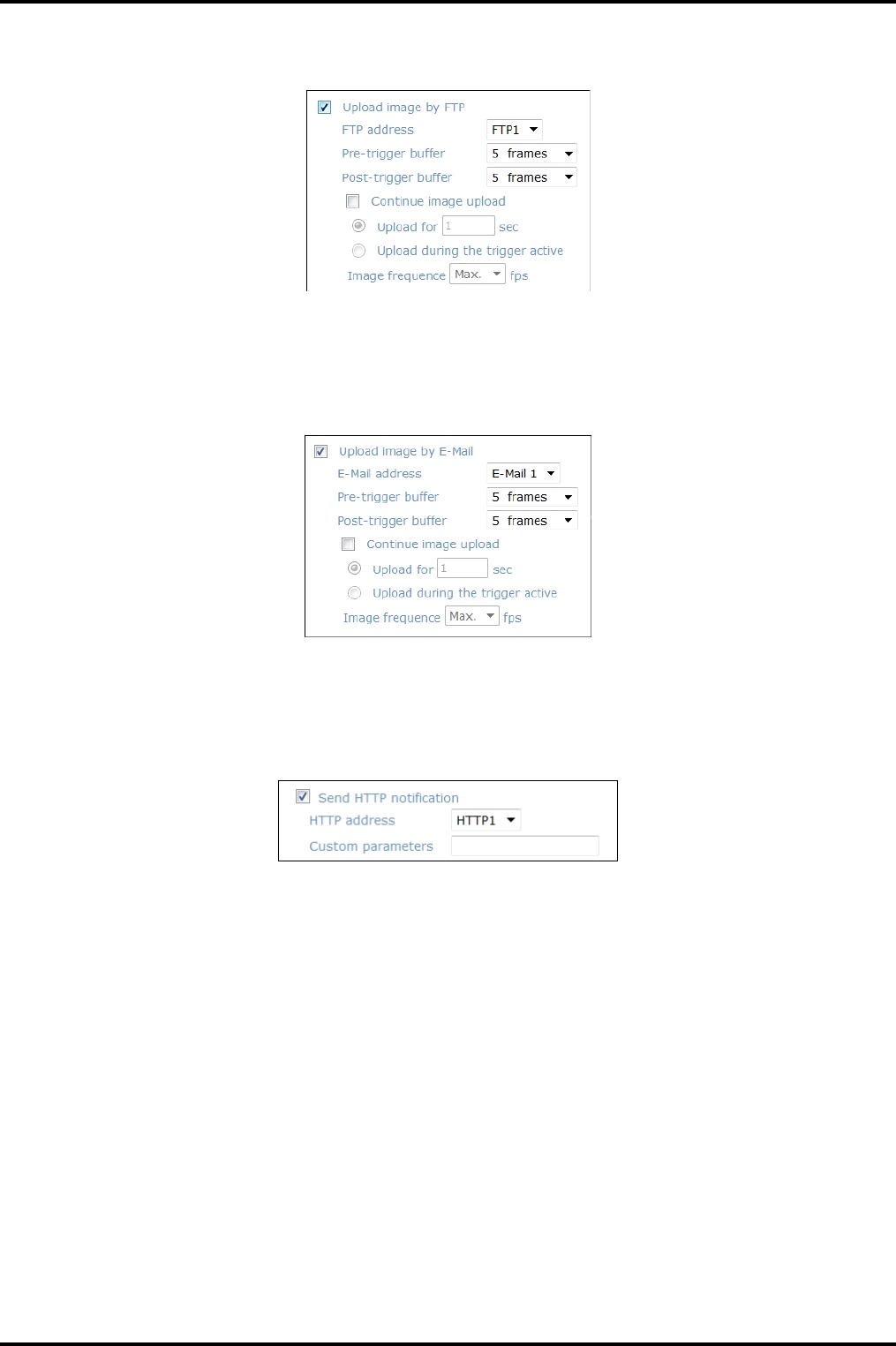Operation Manual

- Upload Image by FTP:
Select this item, and the Administrator can assign a FTP site and configure various parameters as shown in the
figure below. When tampering is detected, event images will be uploaded to the appointed FTP site.
NOTE: The capital letter A/M/R appearing in the very beginning of a name denotes the sort of the recording: A
stands for Alarm; M stands for Motion; R stands for regular recording.
- Upload Image by E-Mail:
Select this item, and the Administrator can assign an e-mail address and configure various parameters as shown
in the figure below. When tampering is detected, event images will be sent to the appointed e-mail address.
NOTE: Make sure SMTP or FTP configuration has been completed. See section 9.5. Mail and 9.6. FTP for further
details.
- Send HTTP notification:
Check this item, select the destination HTTP address, and specify the parameters for HTTP notifications. When
the Tampering Alarm is triggered, the HTTP notifications can be sent to the specified HTTP server.
File Name :
The uploaded image’s filename format can be set in this section. Please select the one that meets your
requirements.
Save :
Click the Save button to save all the Tampering Alarm settings mentioned above.
9.11. Storage Management
Users can store local recordings on a Micro SD/SDHC card up to 16GB. This page shows the capacity information
of the Micro SD card and a recording list with all the recording files saved on the memory card. Users can also
format the SD card and implement automatic recording cleanup through the setting page.
To implement Micro SD card recording, please go to the “Recording” page (see 7.3.12 Recording) for activation.
44
English










